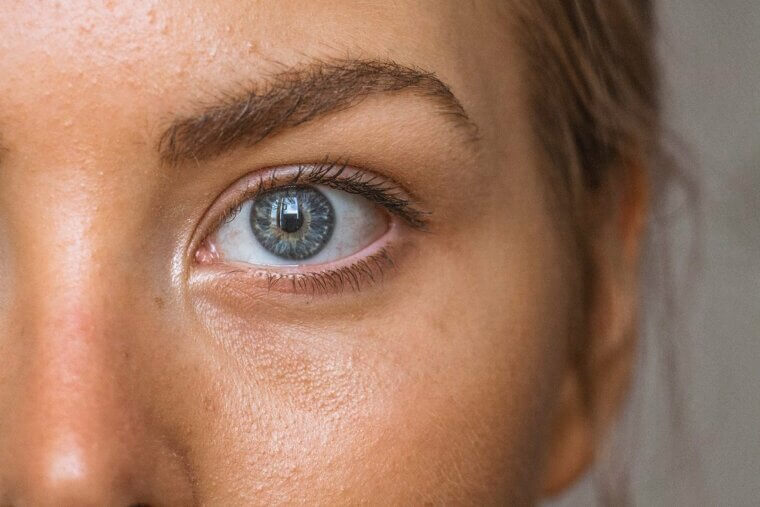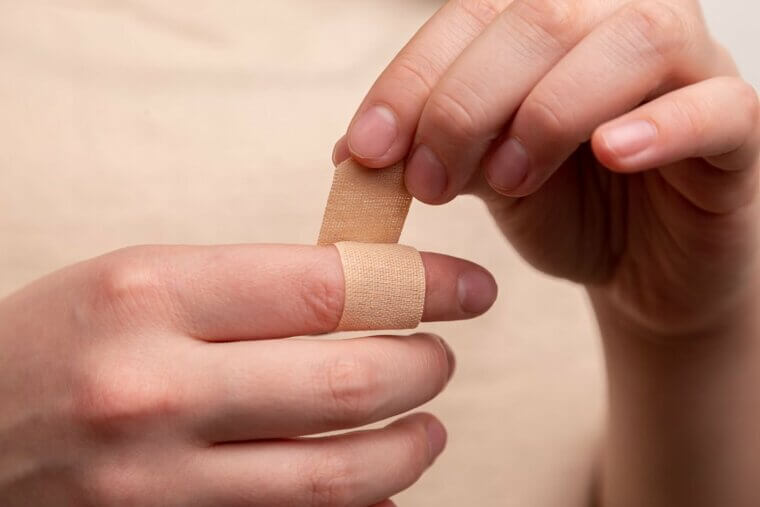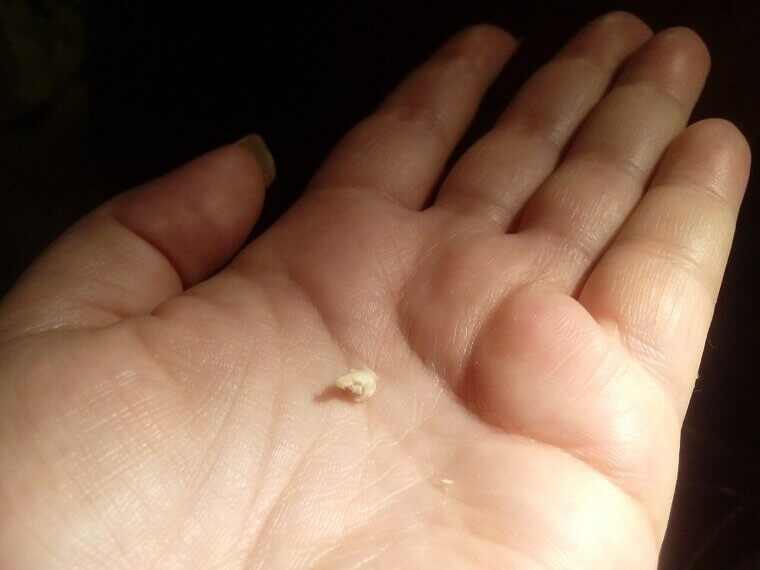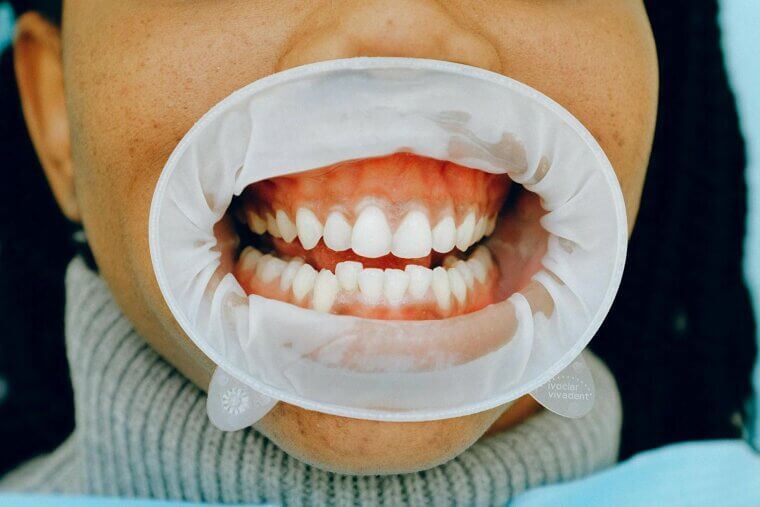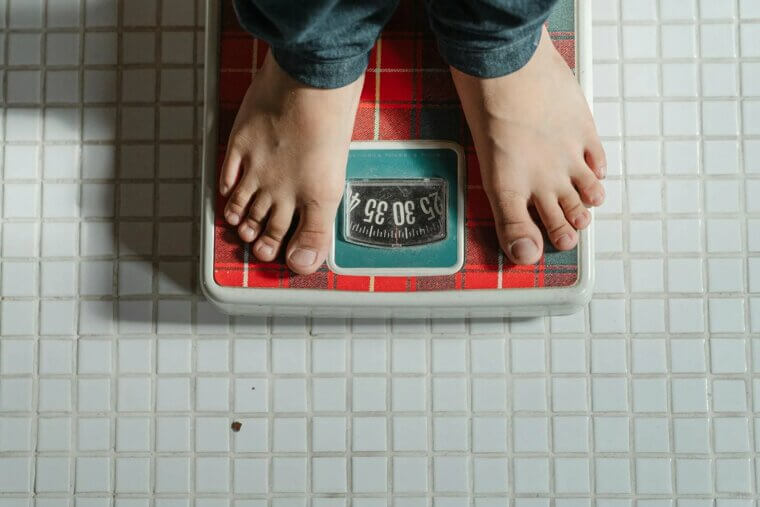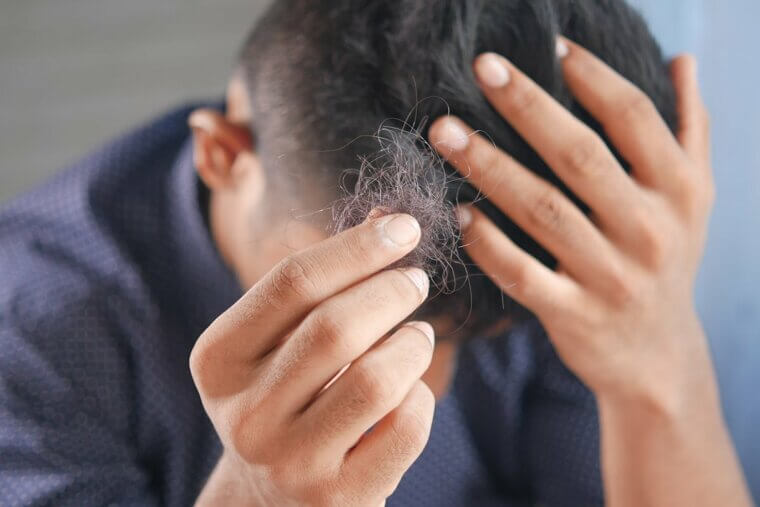Eye Spots
If you’re seeing dark shapes drift across your vision, this could be a sign you need help. The “floaters” can be a symptom of diabetic retinopathy, a complication of diabetes that damages the retina. It’s recommended that people with diabetes have regular eye exams.
Slow-Healing Wounds and Sores
High blood sugar damages your nerves and blood vessels, leading to impaired immune function. That means small wounds you get won’t heal up very fast. If you’ve had a cut that’s refused to heal for more than a week, it’s time to see the doctor.
Foot Ulcers
Another condition caused by high blood sugar. Those with diabetes are particularly at risk of foot ulcers, caused by damaged nerves, and although those foot ulcers won’t necessarily hurt they spell big trouble. Smoking and/or obesity will also make them worse.
Frequent Urination
If you’re finding yourself going to the toilet a lot more often, especially at night, this could be a symptom of diabetes. High blood sugar makes you pee when excess glucose spills into the urine, taking water along with it. Make sure you keep an eye on how many times you pee per day.
Fatigue
Fatigue is a symptom of a great many health problems, and diabetes is one of them. If you’re suddenly finding yourself exhausted when you weren’t before, it’s time to find out why. A doctor will be able to run some tests on you to discover if you have diabetes or not.
Itchy Skin
Poor circulation causes your skin to be itchy when you have diabetes, because the body pulls fluid from your cells. Itchy skin on its own might not mean you have diabetes, but if you have it in addition to some of the other things on this list, it’s time to seek help.
Yeast Infections
High blood sugar levels provide a very favorable environment for yeast to cause infections. It thrives on sugar after all. You may think yeast infections are a female-only thing, but men can get them as well, so watch out for that.
Inflamed Gums
When you have diabetes, you get high levels of glucose in your saliva, and this makes bacteria thrive in your mouth. Before you know it, you have painful inflamed gums. If you suspect diabetes, call a doctor rather than a dentist.
Frequent Headaches
When blood sugar levels are too high (hyperglycemia) or too low (hypoglycemia) this can trigger headaches. They’re a particular kind of painful headache that throbs, and they can be very debilitating. Proper diabetes management will help get rid of them.
Excessive Thirst
One of the biggest warning signs of diabetes is being thirsty all the time. It happens in conjunction with the need for urination: the body is trying to flush out excess sugar (glucose) in the urine, which draws water with it.
Depression
Depression is a symptom of many serious health conditions (and it’s serious on its own as well, of course) but it can hit people with diabetes very hard. Unfortunately people with diabetes, both type 1 and type 2, are at a higher risk of developing depression than those without diabetes.
Low Libido
When there’s something seriously wrong with your body, your libido may drop. Obviously, this can be very difficult for a lot of people. If your libido is low and you have some of the other symptoms on this list too, consult a doctor, and hopefully once your diabetes is treated your sex drive will go back to normal.
Fruity-Smelling Breath
Some people might say they want their breath to smell like fruit… but they would be wrong. A fruity smell on the breath could be diabetic ketoacidosis (DKA), a serious complication of diabetes where the body burns fat for energy instead of glucose.
Different Body Odor
Similar to the breath problem is the body odor problem. A person with diabetes might have a body odor that’s fruity and sweet, because the body is breaking down fat for energy, producing acids called ketones which make their way into the blood and urine.
Increased Hunger
Increased hunger is known as “polyphagia” or “hyperphagia”. It’s a sign of type 2 diabetes, but it is a sign of some other conditions as well. Even if this is the only thing seemingly wrong with you, you should go to the doctor and get it checked out.
Unexplained Weight Loss
If you’re losing weight quickly and you’re not trying to, something may be wrong. And if you’re experiencing other symptoms of diabetes as well, you could well be on the cusp of being diagnosed with the condition. Make a note of everything your body is doing and how much you’re eating.
Hair Loss
This is another bad thing caused by high blood sugar levels. High blood sugar levels damage blood vessels, thus hindering the delivery of oxygen and nutrients to hair follicles. The result? Thinning hair and hair loss. But it will improve with proper treatment.
Blurred Vision
High blood sugar levels can damage the blood vessels in the retina, leading to blurred vision. This can be hugely problematic, because obviously most people rely on their sight. Luckily, this problem will go away once the diabetes is treated, so get yourself to a doctor right away.
Dizziness
Low blood sugar (hypoglycemia) can cause dizziness due to the brain not receiving enough glucose. Meanwhile high blood sugar (hyperglycemia) can also cause dizziness due to dehydration. Treating the diabetes properly will help with this.
Irritability
If you find yourself suddenly irritated all the time, there could of course be many reasons, but it’s definitely worth checking to see if it’s diabetes. Low blood sugar can cause irritability, which is obviously bad for you and everyone around you.
Mood Swings
Related to the above is mood swings. When you’re going from happy to sad to happy again, it can be hard to think straight for long enough to make a doctor’s appointment. But it needs to be done, or both your physical and mental health will suffer.
Constipation
Constipation is an embarrassing thing to talk about with your doctor, but it has to be done. With diabetes, high blood sugar damages the nerves controlling the digestive system, slowing down bowel movements and leading to constipation.
Diarrhea
And then you’ve got the opposite side to constipation, diarrhea. The bowel complications of diabetes can be hard to deal with, especially since some medications to deal with diabetes can actually cause diarrhea themselves. But a doctor will be able to help you through it.
Difficulty Concentrating
On its own, difficulty concentrating might mean nothing, but put it together with some of these other symptoms and you might well be looking at a diabetes diagnosis. Keep an eye on your health and consult a doctor when necessary.
Dark Skin Patches
Dark skin patches are known as acanthosis nigricans, and you should look out for them in places like the neck and armpits. They’re an early sign of insulin resistance and thus need checking out by a medical professional as soon as possible.
Boils
Impaired immune function makes the skin more susceptible to bacterial infections and that’s how you get boils with diabetes. You should be able to treat them at home with hot compresses, but if that doesn’t work, see a doctor.
Nausea
Both high and low blood sugar levels can cause nausea in a diabetic person. Unfortunately, some of the medications used to control diabetes can also cause it. If the nausea is getting so bad you’re vomiting, call 911 for emergency help.
Erectile Dysfunction
Erectile dysfunction is something society finds very difficult to talk about, but it has to be done. If you’re finding yourself suffering from the condition due to diabetes, help is at hand – once your diabetes is properly treated, the problem should go away and you can resume your normal life.
Dry or Cracked Skin on Feet
Lots of people have cracked skin on their feet and don’t have diabetes, but if the problem arrives in conjunction with any of these other symptoms then it’s time to get yourself checked out. Unfortunately, people with diabetes have a lot of problems with their feet, especially if they also suffer from obesity.
Tingling or Numbness in Hands
Tingling or numbness in the hands is a symptom that’s hard to ignore, but some people simply cross their fingers and hope it will go away. Don’t be one of those people. Those symptoms could definitely be a sign of something more serious, not even necessarily diabetes, so go and schedule a doctor’s appointment.

